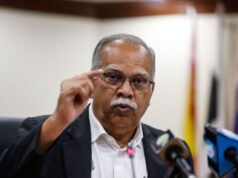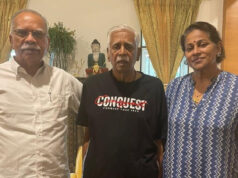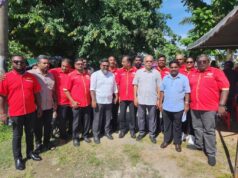 George Town – Deputy Chief Minister of Penang Prof Dr P.Ramasamy has warned that the introduction of Dual Language Programme (DLP) would endanger vernacular schools in this country. The following is the full text of his posting in his facebook today:
George Town – Deputy Chief Minister of Penang Prof Dr P.Ramasamy has warned that the introduction of Dual Language Programme (DLP) would endanger vernacular schools in this country. The following is the full text of his posting in his facebook today:
“Increasing the competency of English and Bahasa Melayu in schools in Malaysia is something that cannot be underated. However, such an effort needs to be established on the basis of democratic participation of the citizens. There is no point in mechanically introducing the DLP, if Chinese and Indians feel that such a move might endanger the very character of vernacular schools in the country.
The Dual Language Programme (DLP) introduced recently is an attempt on the part of the government to allow for the teaching of mathematics and science related subjects in either English or Bahasa Melayu. The choice of the language is left to the schools particularly members of the parent teacher associations.
In the early 2000s, the government came out with the PPSMI (teaching of science and mathematics in English and Bahasa Malaysia) to be implemented, however, the poor performance of children in the English language prevented the government from fully implementing the programme. Recently, the government has once again came up with the same policy perhaps in a more modified form to allow for the teaching of mathematics and science related subject in these two languages.
The move to introduce the DLP in national and national-type schools remains controversial. Even though the participation of schools in this programme is voluntary on the basis of some well-defined criteria, there are fears that such a programme might dilute the contents of Bahasa Melayu in national schools and Mandarin and Tamil in vernacular schools.
Although a number of schools have agreed to experiment with this DLP, there are nagging fears that the government had not thought the full implications of such a programme for school children. While there is some fear that there might be possibility of the content of Bahasa Melayu might be eventually reduced in national schools, there is greater fear amongs the Chinese and Indians that very existence of vernacular schools would be in danger of being phased out.
The Chinese schools’ assocaitions have clearly come out with decision that they would not be particupating in the programme. They expressed fears that the introduction of DLP might endanger the existence and character of Chinese schools in the country. In fact, they have urged the government to reconsider the decision to implement the DLP.
As it 49 Tamils schools from various states have indicated that they would be participating in the DLP. But one one is sure how these Tamil schools would have qualified on the basis of criteria that have been established. There are rumours that the MIC working closely with some individuals in the Prime Minister’s Department have allowed these schools to be placed on the list as result of a special request. What was the special request is yet to be established.
However, majority of Indians in the country are up-in-arms against the DLP for they, like their Chinese counterparts, fear that it would erode the use of Tamil as medium of instruction in Tamil schools. As it the use of Tamil is around 65 percent but however if DLP is implemented, the use of Tamil would dip to 47 percent.
Clearly, if the majority of schools, both national and national-types, participate in this DLP, there is danger that Chinese and Tamil vernacular schools might lost their character in terms of using the mother tongue as the medium of instruction in vernacular schools.”










